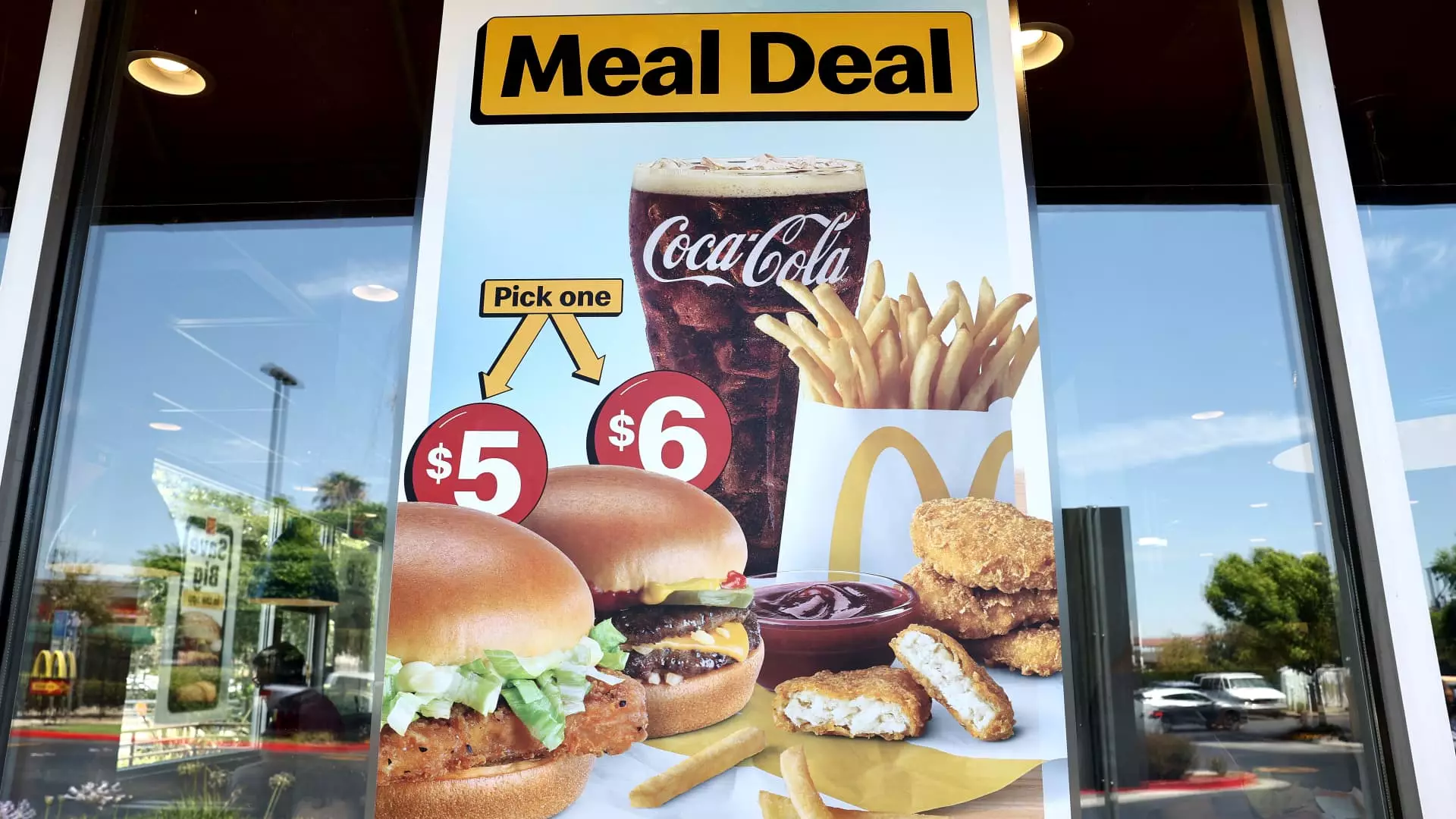In an attempt to entice customers who have been cutting back on their spending, fast-food chains like McDonald’s, Taco Bell, Burger King, and Wendy’s are reintroducing or introducing $5 meal deals. This move comes as many restaurant companies are gearing up to report their second-quarter results, with investors expecting to hear that foot traffic has decreased and sales have stagnated. The $5 price point seems to be a desperate attempt to boost results for the next quarter, with McDonald’s reporting an increase in traffic as a direct result of these promotions.
Over the past few years, fast-food prices have been steadily on the rise, leading many consumers to question the value they are receiving for their money. A recent LendingTree survey revealed that more than 60% of respondents have cut back on fast-food spending due to the perceived high prices. This shift in consumer behavior has impacted the fast-food industry, with even low-income customers being deterred by runaway menu prices.
The shift in consumer behavior towards fast food is not the only thing worrying investors. Shares of major fast-food chains like McDonald’s, Burger King, Wendy’s, and Taco Bell owner Yum Brands have all seen double-digit declines this year. Wall Street has an overall sense of pessimism about the second-quarter results of these chains, with KeyBanc analyst Eric Gonzalez predicting that many large chains will miss consensus estimates.
Value meals offer fast-food chains a way to attract customers and increase foot traffic. In addition to growing traffic, these deals aim to convert deal-seeking customers into higher-ticket consumers by introducing add-ons or upselling. However, the risk lies in whether these promotions will be successful in converting customers, as failure to do so could result in diminishing profits in the long run.
Franchisees have become increasingly resistant to parent companies’ strategies in recent years, especially when it comes to discounts that eat into their profits. Many franchisees, backed by private equity money, have pushed back against discounts that they believe will hurt their bottom line. This resistance from franchisees has forced parent companies to rethink their deal strategies and find ways to make promotions more appealing.
Subway’s $5 footlong deal serves as a cautionary tale for the fast-food industry. While the deal was popular among customers, it ultimately eroded profits for operators and led to a decline in the brand’s overall performance. This resulted in closures, angry operators, and a search for new ways to win back customers. Investors and franchisees have become wary of similar promotions that could have negative long-term effects.
Fast-food chains are facing a tough challenge in bringing back $5 meal deals to attract customers in a market where consumer behavior and perceptions about fast-food prices are changing. The success of these promotions will depend on the ability of chains to convert deal-seeking customers into higher-spending consumers, all while balancing the interests of franchisees and investors. The future of fast-food promotions hangs in the balance, with the industry at a critical crossroads in its efforts to revive sales.


Leave a Reply